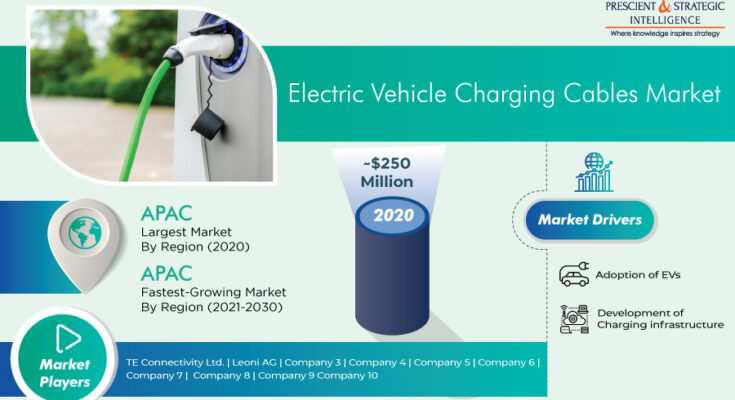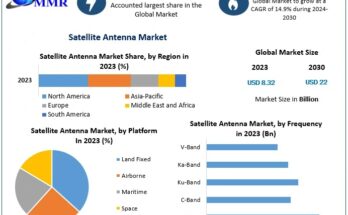The global electric vehicle charging cables market generated a revenue of approximately $250 million in 2020, and it will exhibit huge expansion from 2021 to 2030, as per the estimates of P&S Intelligence, a market research firm based in India. The factors fueling the market surge are the growing deployment of electric vehicles (EVs), increasing concerns being raised over the escalating air pollution levels, and the burgeoning demand for public EV charging facilities and infrastructure.
With the soaring adoption of EVs, the governments of many countries are actively focusing on developing EV charging stations. Moreover, several governments are making huge investments for developing and installing EV charging stations in various public places. As per the International Energy Agency (IEA), the total number of EV charging points around the world increased by nearly 44% from 2017 to 2018. The development of these stations is fueling the advancement of the electric vehicle charging cables market.
Access Report Summary – Electric Vehicle Charging Cables Market Segmentation Analysis Report
Depending on power supply, the market is divided into direct current (DC) and alternating current (AC) categories. Between these, the AC category is predicted to dominate the market in the forthcoming years. This is credited to the surging installation of charging facilities in various private settings such as homes and offices. The market is also classified, on the basis of cable shape, into coiled and straight categories. Of these, the straight category generated the higher revenue in the past years.
Furthermore, this category is predicted to hold the larger share in the market in the upcoming years. This is ascribed to the lower maintenance and operating costs and the greater ease of installation of these cables than the coiled ones. Across the globe, the Asia-Pacific (APAC) region held the largest share in the electric vehicle charging cables market in 2020, with China contributing the highest revenue to the APAC market.
In the coming years, South Korea and Japan are expected to lead the industry, primarily due to the fact that the governments of these countries are providing financial and regulatory support to the buyers and manufacturers of EVs, which is, in turn, fueling the development of EV charging stations. Furthermore, the electric vehicle charging cables market is expected to demonstrate the fastest growth in the APAC region in the upcoming years.
This will be because of the launch of various projects by the governments of the regional countries for increasing the number of public EV charging stations. Apart from this, the expansion of the EV industry in China, South Korea, and Japan is also driving the growth of the market in this region. This is because the mushrooming deployment of EVs is propelling the demand for electric vehicle supply equipment (EVSE) and related cables in the region.
Therefore, it can be said without hesitation that the market will surge in the forthcoming years, mainly because of the ballooning adoption of EVs, on account of the growing demand for eco-friendly vehicles, due to the rising air pollution levels and the rapid environmental degradation across the world.




